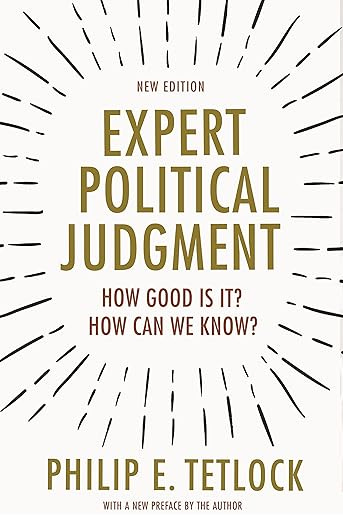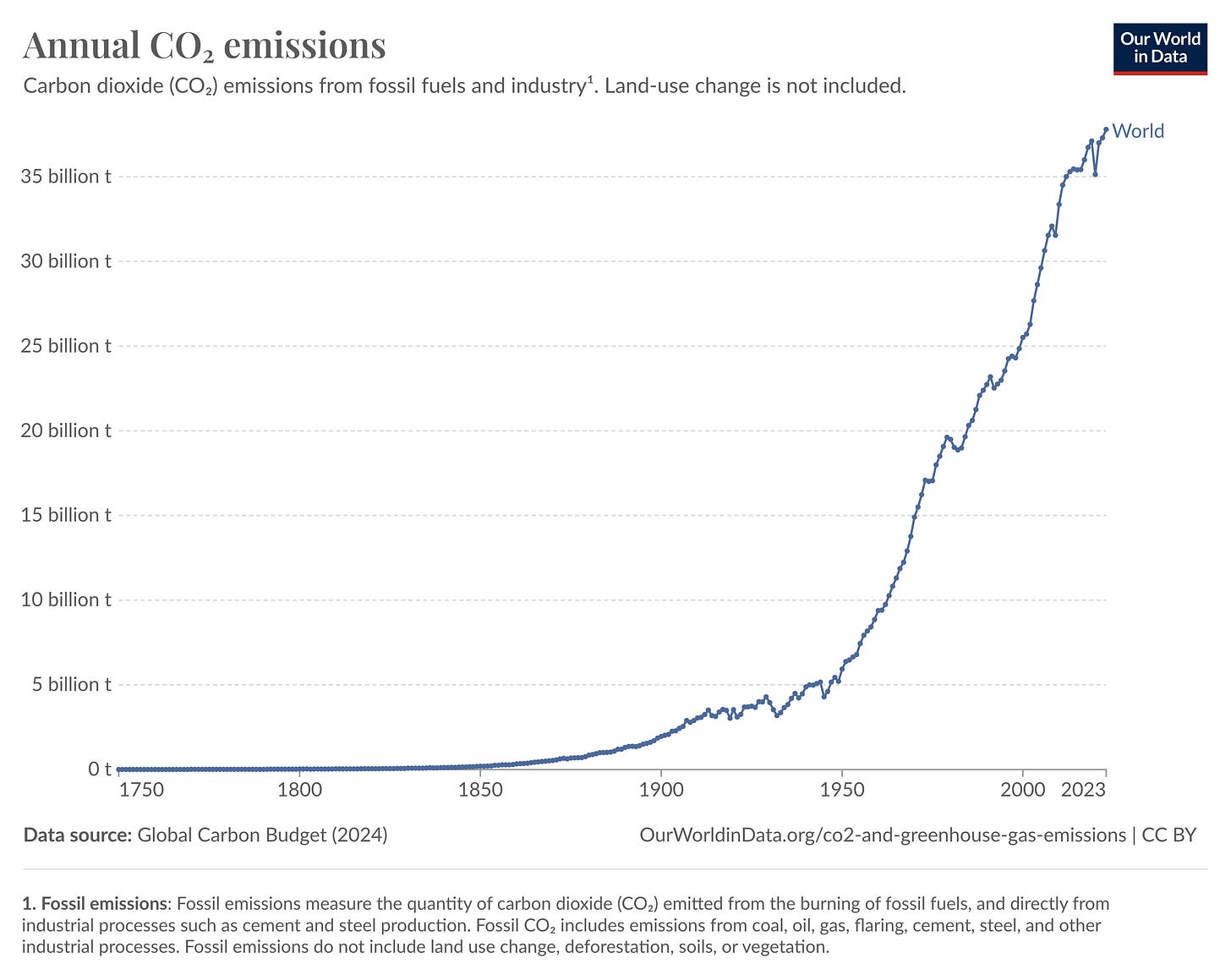Make someone’s day: Gift a subscription to your friends and family!
Few political movements over the last 60 years have been as successful politically as the Greens. While most political movements that are successful in electoral politics emerged in the 19th Century (Social Democrats and Liberals) or the early 20th Century (Communists and Democratic Socialists), the Greens emerged in the late 1960s.
The Greens fundamentally challenged the traditional Leftist assumption that the government should be primarily devoted to the redistribution of status, income, and wealth from the upper classes to the lower classes. They believed that all humans were a threat to the natural environment, so the primary role of government should be protecting the natural environment from all people.
Now, in practice, Greens have largely melded on a concern about the natural environment in addition to traditional redistribution policies of the Left. Greens rarely disagree with other Left-of-Center parties on these issue stands, they want to shift the emphasis to protecting the natural environment.
Greens have been remarkably successful at taking over virtually every political party to the Left-of-Center throughout the Western world. It is now very rare for a Left-of-Center to openly state that protecting the natural environment is less important than promoting economic growth or expanding social programs.
So in a broad sense, virtually all Left-of-Center political parties in the Western world are Green in some sense. Greens have also been remarkably successful in co-opting Center-Right parties in Canada and Europe.
Despite this political success, the Greens are not one united movement. I think that it is best to see the Green movement as having two distinct wings. Those wings have some serious disagreements with each other, although so far, they have been successful in papering over the differences. But now I think those differences are beginning to show.
I label the two wings of the Green movement:
Degrowthers
Techno-Greens
Note that if you are not happy with my terminology, feel free to substitute your preferred names in your mind as you read. It is the concepts that matter, not the terminology.
This article is about explaining the differences between the two and why both are equally dangerous to the goal of promoting long-term widely-shared economic growth, which I believe should be the #1 goal for all governments.
See also my other posts on Green energy polices:
Why NetZero by 2050 is impossible (short of economic collapse)
How much does eliminating US CO2 emissions lower future temperatures?
A simple and cost-effective plan to quickly lower US carbon emissions
Why solar cannot displace global fossil fuels usage at scale
More evidence that solar + wind cannot decommission coal plants at scale
You might also enjoy reading my “From Poverty to Progress” book series:
What both Green wings agree on
Despite their very important differences, both Degrowthers and Techno-Greens are united around the following:
Protecting the natural environment is a very important goal of government.
Climate change is a very bad trend that governments must take action against.
People who disagree with the above are uninformed, unintelligent, immoral, or corrupted by funding from the fossil fuel industry (or some combination of the four)…
Voting for parties to the Left of the Center is a moral calling, but we must organize outside to pressure those parties to do the right thing.
International agreements are key symbolic victories that set an example for the rest of the world.
Global Netzero by 2050 (or something like it) is the goal that the world should rally around.
Radical declines in the use of fossil fuels are the key to achieving Global Netzero by 2050.
Fossil fuels are morally unacceptable (to at least some degree).
What Degrowthers believe
Degrowthers believes that the Earth has hard environmental limits that humanity cannot transcend without devastating consequences. And we are always just one or a few decades away from hitting those environmental limits. Previous predictions of hitting limits by previous generations of Greens are ignored or conveniently forgotten.
Many Degrowthers push this argument to their logical extreme. They believe that economic growth and the capitalist economic system are the real problems. They believe that climate change is just one of the many symptoms of the problem. They also see consumerism, inequality, poor health, long work hours, unhappiness, economic crises, war, and a whole host of other problems as signs that we are approaching those hard environmental limits.
While Marxists saw the Proletariat as the revolutionary force that would crush capitalism and create a more just social and economic system, Degrowthers view environmental activists as playing this role. Now they differ greatly on the actual characteristics of this future social and economic system, but Degrowthers all agree that what we have now is rotten to the core and doomed to fail.
And for anyone who is familiar with the history of the Left, it is not surprising to learn that they are not very interested in determining how this new society will function in practice. The Left just knows that what we have now is morally inferior to the vision between their ears.
Now I fully acknowledge that there are many people who sympathize with Degrowthers but are not willing to go as far as true Degrowthers. In practice, this difference does not matter as those same people voluntarily cooperate with Degrowthers toward a higher goal. One might call those who sympathize with Degrowther without being truly anti-capitalist as “Deep Greens.”
Degrowthers see affordable, abundant, and secure energy as a bad thing for humanity as it leads to economic growth. The technical disadvantages of renewable energy is a feature, not a bug. So are high energy prices, because they give incentives to humans to live within their environmental limits.
Degrowthers have a romantic nostalgia for some period in the past that they cannot quite identify. For some Degrowthers, it is Hunter-Gatherers, while for others it is the 18th or 19th Century, but for most of them, it is just better times.
As you can probably see, Degrowthers are Reactionaries who share much in common with 19th-century Century Conservatives who wanted to go back to a pre-industrial era. And just like 19th-century Conservatives, they are very unclear on how to get there and are unconcerned about the impact of doing so on the masses.
As you can tell, I am quite hostile to this view.
Degrowth ideology is about as Anti-Progress a worldview as you can get, and the entire history of the last two centuries completely invalidates their worldview.
Do expert predictions of doom come true?
It is important to remember that during that entire time, “experts” predicted doom in the near future due to hitting ecological limits. Many of the failed predictions of the past bear striking resemblance to current predictions of doom, including the climate change movement.
One of the most under-appreciated books of the 21st Century is Expert Political Judgment: How Good Is It? How Can We Know? by Philip Tetlock.
The book is not exactly an exciting read, but I think that Tetlock’s study is extraordinarily important. I would highly recommend reading my summary of his book in my online library of book summaries on technology, history, economic growth, and progress.
Professor Tetlock asked 284 world-renowned experts to make 27,451 verifiable predictions of the future. Many years later he then measured their accuracy and determined why some experts were more accurate than others. A few key take-ways from his book are:
Expert predictions of the future are no more accurate than random guesses!
The more confident an expert is in their own prediction, the less accurate the prediction turns out to be.
The overall amount of knowledge or prestige of the expert does not lead to more accurate predictions. It just leads to overconfidence.
Even after the predictions failed, most experts were unlikely to admit their error. This is particularly true with those who were most confident in their original prediction.
The key difference was whether the expert embraced “The One Big Idea”, which Tetlock calls Hedgehogs, or whether the expert embraced many different ideas and methods, which Tetlock calls Foxes.
Hedgehogs were very confident in their predictions because they believed that their “One Big Idea” enabled them to understand a simple reality. They performed much worse than random guessing!
Foxes believed that we live in a very complicated world with many causal factors. They were not very confident in their predictions, but they were the only type of expert who performed better than random guessing.
Now here is the punch line:
“Doomsters” who embraced a pessimistic view based upon ecological limits were the least accurate predictors (far below random guessing).
Unfortunately, the media and political environment reward very inaccurate Hedgehogs, particularly Doomsters, over somewhat accurate Foxes because of their certainty and flamboyant style.
Based on this study (and other studies of Doomsters of the past), I am very confident that Degrowthers are wrong and very dangerous. And it is pretty clear that they have no intention of admitting that their predictions were inaccurate even after it is obvious to everyone else.
As Tetlock writes:
hedgehogs dig themselves into intellectual holes. The deeper they dig, the harder it gets to climb out and see what is happening outside, and the more tempting it becomes to keep on doing what they know how to do: continue their metaphorical digging by uncovering new reasons why their initial inclination, usually too optimistic or pessimistic, was right. Hedgehogs are thus at continual risk of becoming prisoners of their preconceptions, trapped in self-reinforcing cycles in which their initial ideological disposition stimulates thoughts that further justify that inclination which, in turn, stimulates further supportive thoughts…
Too many lines of evidence converge: hedgehogs are poor forecasters who refuse to acknowledge mistakes, dismiss dissonant evidence, and warm to the possibility that things could have worked out differently only if doing so rescues favorite theories of history from falsification.
Year Zero
This may seem like an exaggeration to some, but I am convinced that Degrowthers can willingly lead us to a societal doom that is worse than what they predict.
If given unrestricted power, Degrowthers will recreate something like the Khmer Rouge’s Year Zero in Cambodia in 1975. Year Zero was an attempt to erase history and reset Cambodian society to an agrarian utopia. The result was the death of roughly one-third of the Cambodian people.
If you think that I am exaggerating, think again. The very same mental disorders that unleashed the Khmer Rouge in 1975 are still around in modern-day America and the rest of the West. And these psychological tendencies are particularly strong with self-described Greens.
Radical ideologies never go away, they just change costumes and terminologies. And when you see them for what they are, you can never unsee them.
Radical ideologies never go away, they just change costumes and terminologies.
See also my other articles and podcasts on Ideology:
Why Ideologies Threaten Progress (Part 1 of 3-part podcast series)
Why ideologies fail (podcast)
Descent into a man-made Hell: Understanding modern Totalitarianism
What Techno-Greens believe
While Degrowthers are best symbolized by angry but diverse young demonstrators on the streets (like in the lead photo), Techno-Greens are best symbolized by very serious white professionals in impeccable suits. Techno-Greens make it a habit of making sure other people know that they are “very serious people” to clearly differentiate themselves from Degrowthers.
While Degrowthers lack faith that humans can overcome hard environmental limits, Techno-Greens have a strong faith in the ability of technological innovations and skillfully directed capital to bend back those environmental limits to make room for an increased standard of living for the masses. As I wrote in a recent article, I share that belief.
Techno-Greens agrees with Degrowthers that there are certain environmental limits at a given level of technology, but Techno-Greens have faith that humans can innovate faster than we approach those limits.
While Degrowthers sees environmental limits as a hard, unscalable wall that humanity is fast approaching, Techno-Greens sees humans innovating technological solutions that constantly jump over higher and higher environmental hurdles.
Techno-Greens realize that humanity has been confronted by seemingly unjumpable hurdlers until one person says “No problem, I can jump that.” Even if 100 hurdlers in a row fail to jump the hurdle, it only takes one successful hurdler for others to copy.
More specifically, Techno-Greens believes that government policies should subsidize and mandate the use of the following technologies:
Solar power
Wind power
Utility-scale batteries
Electric vehicles
and other more energy-efficient technologies, such as heat pumps, insulation, etc.
Given the innovations in those fields of technology, it is not hard to see why Techno-Greens are so optimistic. All those technologies have gotten cheaper, more efficient, more usable, and more performant. It is easy to assume that the trend over the last 30 years will continue for another 30 years and that this will either solve or at least seriously mitigate climate change and other environmental problems.
The Green Energy Industrial Coalition
The chosen strategy of government subsidization of Green energy is also very useful in creating a very broad political coalition on the Center Left, including:
Politicians who want to get elected by promising to spend other people’s money (an age-old incentive).
Media who get higher ratings and social status a steady narrative of climate doom.
Green activists who get a sense of moral identity and community in their political activities.
Intellectuals who look wise and thoughtful for seeing deeper than current positive economic trends.
Solar, wind, battery, and EV manufacturing companies who seek a profit windfall from those subsidies and mandates.
Construction companies who will also get a share.
Trade unions who want Green jobs for their members
Employees in all the above.
Fossil fuel companies who are tired of being bludgeoned by Greens and want good Public Relations.
Financial advisors who have been captured by ESG and have a profit and status incentive to promote a view of enormous profits by investing in Green energy.
Pension funds, who have been captured by ESG and believe that funding Green energy projects is good for their client’s bottom line (because Green financial advisors told them so).
Billionaire investors who see a big profit opportunity.
State and local Departments of Transportation who want increased funding.
I think people do not understand the sheer scale of Green energy subsidies and mandates. The Bloomberg New Energy Finance (BNEF) estimates that global Green energy spending has reached $1.769 trillion per year. This is more than three times the total global Green spending in 2019. As a point of reference, the total expenditures of the US federal government came to $6.1 trillion (or 22.8% of the US GDP).
This amount is roughly double current spending on fossil fuels and its associated infrastructure. So much for renewables being cheaper than fossil fuels.
Roughly $10 trillion dollars of Green energy spending this century has failed to produce the desired results. Coal, oil, and natural gas still dominate the global energy mix, and those energy sources are still growing at 4x the TWh as Green energy source. And nuclear and hydro-electric power, which are opposed by most Greens also make substantial contributions.
BNEF celebrates Green energy policies as a good thing, but warns that current investment are still nowhere near enough spending. To reach global Netzero by 2050, BNEF projects that the world would need more than quadruple annual spending to $7.5 trillion per year!
And to the best of my knowledge, no one affiliated with either of the two wings of the Green movement is the slightest bit concerned about spending that kind of money despite very tepid results on the first $10 trillion.
Why Techno-Green policies will inevitably fail
In order to keep this article of reasonable length, I will not explain why I think there is strong evidence that their favored policies will fail. The radically increasing carbon dioxide emissions since 1990 give evidence to the magnitude of this failure.
Here are links to articles that explain why the supposed Green Energy Transition will fail to “transist” (if that is a word):
Why solar cannot displace global fossil fuels usage at scale
More evidence that solar + wind cannot decommission coal plants at scale
Energy Austerity in disguise
Regardless of stated intentions, Techo-Green methods and Degrowth methods lead to the same place: It is Energy Austerity via higher energy prices, not an Energy Transition. And this Austerity movement is not driven by natural limits to Earth or economic limits based on market prices. This Austerity movement is driven by ideology plus government subsidies and mandates.
Regardless of stated intentions, Techo-Green methods and Degrowth methods lead to the same place: It is Energy Austerity via higher energy prices, not an Energy Transition. And this Austerity movement is not driven by natural limits to Earth or economic limits based on market prices. This Austerity movement is driven by ideology plus government subsidies and mandates.
This is exactly the opposite of what we need to provide a strong foundation for long-term widely-shared economic growth: affordable, abundant, and secure energy.
What about Carbon taxes?
Before I go on to critique Techno-Green solutions, I think that there is one related group that espouses a different method of achieving Green goals. One flavor of Techo-Green espouses carbon taxes over Green energy subsidies and mandates. They believe that carbon taxes are a market-based method to promote energy innovation and efficiency.
In practice, I do not think that there is a great deal of difference between the two groups. Both groups want to use the power of governments to create markets where markets do not exist. One group wants to use negative incentives of taxes to create the new market, while the other group wants to use positive incentives of subsidies to do so.
The result of both policies is the emergence of the Green Energy Industrial Coalition mentioned earlier. It is just a question of whether the government-imposed incentives are positive or negative. The result is the same.
It is Energy Austerity via higher energy prices, not an Energy Transition.
Because I have already written an article on the subject, I will not go into detail here about why I oppose carbon taxes for the simple reason that they make energy expensive, when we should be making energy affordable.
What Techno-Greens are vague about
Techno-Greens are very vague about a few key issues, and I cannot help but wonder if it is deliberate obfuscation:
Do Techno-Greens actually believe that their methods can achieve Global Netzero by 2050?
Do Techno-Greens actually believe that a climate catastrophe is very likely if we do not reach Global Netzero by 2050?
How many trillion dollars worth of government spending do Techno-Greens believe is worth the goal?
In fact, what actually is the Techno-Green goal?
Is your goal to:Increase renewable energy spending for its own sake?
If so, why?Avoid a climate catastrophe?
If so, then why not support more cost-effective means to do so?Push back a climate catastrophe by just a few years (because they cannot reach Netzero before 2050)?
If so, then what is the point of spending trillions to do that?Create abundant, affordable, and secure energy for the world’s future?
If so, then why focus almost exclusively on solar and wind (or nuclear). Why oppose fossil fuels, especially natural gas?Radically reduce fossil fuel usage?
If so, then why not support more effective means to do so, and why not differentiate between fossil fuels based on their carbon dioxide emissions (for example coal versus natural gas)?Foster Public Relations for their industry to keep the cash flowing?
Make money investing in Green energy?
Hmm, why did you suddenly smirk and nervously adjust your tie…Help parties of the Center-Left win elections?
Or is it something else?
I have had many discussions with people who seem to identify as Techno-Greens, and they are very vague on the answers to all these questions. When I press them, they typically evade. I don’t think that I have ever really pinned down a Techno-Green on these key questions.
In particular, the vast majority of Techno-Greens are not the slightest bit interested in any of the following means (although many are very open about their viability):
Cutting cherished government programs (education, pensions, health care, anti-poverty programs) to pay for Green energy investments
Swapping coal plants for natural gas plants
Eco-engineering
Adaptation to climate change in the future, instead of mitigation today.
There is clearly a taboo among Techno-Greens that they are very afraid of violating, so they evade questions like the above.
Dishonesty is built into Techno-Green beliefs
While I think Techno-Greens are much more reasonable people than Degrowthers, I think that there is a deep Dishonesty and lack of Moral Courage at the core of the movement. Unfortunately, both of those characteristics have been common of college-educated professionals on the Center-Left for the last 60 years.
I believe that many (most?) Techno-Greens:
Do not actually agree that a climate catastrophe is imminent, but they are afraid to admit it in public because they will be labeled “climate deniers” by their Green allies and shut off the flow of direct and indirect revenue from the government.
Do not believe that Green energy subsidies will actually achieve Netzero by 2050, but cannot state it publicly because this forces them to choose between being:
Climate deniers (or at least being called that by other Greens)
Degrowthers
Do not actually believe that they have credible evidence that their chosen means are better than other means to accomplish the same goal. That is exactly why they are vague on their goals.
Know that whatever means they actually believe in private is not worth spending society spending many trillions of dollars every year for decades.
A coalition with no social goal, only private ones
Techno-Green policies are a means of chasing no goal. It is only the Green Energy Industrial Coalition that keeps it all going… for now.
What started as a moral goal, protecting the natural environment, has devolved into a chase for:
social status,
peer approval,
political power, and
money.
The cost of achieving all the above is a lack of Honesty and Moral Courage to directly address the questions I listed above.
Now I do not believe that this was the original goal, but it was likely the inevitable destination. This is the result of ideological movements that seek goals that are not possible to achieve in material reality. And if you cannot achieve your moral goals, why not make some money along the way, eh?
Questions to ask yourself
If you are sympathetic to Greens, I encourage you to ask yourself the following questions and be brutally honest:
Are Green energy policies the most cost-effective means to protect the natural environment?
And, yes, the question really matters because society has finite resources that might otherwise be devoted to economic growth, pensions, health care, education or fighting poverty.If averting catastrophic climate change is the goal, should we not focus on the most cost-effective means to avert it, such as geo-engineering or adaptation?
Isn’t it likely that a 21st-century energy innovation will make current Green energy obsolete immediately, so why not focus on that objective? And here is a very cost-effective plan to do it.
Is not protecting and expanding wild habitats far more important to the natural environment than future temperatures?
Isn’t promoting long-term, widely shared economic growth at least as important as protecting the natural environment, and isn’t there a trade-off between the two?
What is the absolute maximum amount of funding per year that you will accept for protecting the natural environment? Is it above or below the current 1.7 trillion level? And take into account that your answer leaves less money for economic growth, education, pensions, health care, and anti-poverty programs.
Won’t a wealthy and prosperous world with abundant energy in 2100 be better at adapting to climate change than a poor one with less energy?
Aren’t there radical differences in environmental impacts between fossil fuels, particularly between natural gas and coal? If so, then isn’t it more cost-effective to first swap coal for natural gas before promoting green energy?
While I think that Degrowthers are very dangerous for humanity, I at least give them credit for higher levels of Honesty and Moral Courage than Techno-Greens.
What about pro-nuclear Greens?
I have another article on the limitations of nuclear power, so I will not go into detail here.
Unfortunately, nuclear power has one huge drawback: massive and lengthy construction costa. If one ignores “system costs,” which I explained in a previous article on solar power, nuclear power plants have the most expensive construction costs in the world.
For example, the most recently constructed nuclear power plant in the United States (Vogtle Unit 3 and Unit 4 in Georgia) cost an estimated $36.8 billion! In the United States based on the most recent data, nuclear power plants cost 23X the price and take almost 20X as long to get completed as energy-efficient Combined Cycle Gas Turbines (CCGT).
I have noticed that it does not take long for my attempts to quiz Techo-Greens as to their goals and optimism in accomplishing them to get a “But I support nuclear power.” They always act like this is a great concession to reality on their part, showing that they are not Degrowthers.
Fine.
Supporting nuclear is an important concession to reality, but I will not see Techno-Greens as allies until they enthusiastically and publicly embrace the following:
Promoting long-term widely shared economic growth is more important than protecting the natural environment, and there is a trade-off between the two goals.
And the following energy sources are essential to accomplishing this primary goal:
Natural gas
Nuclear
Hydro-electric, and
Petroleum (until electric vehicles become cheaper than ICE vehicles without subsidies, mandates, or car companies “voluntarily” taking a profit loss for each EV).
Coal, at least temporarily for developing nations.
The reality is that nuclear power is so expensive and so long to deploy that it really does not offer a way to get to Global Netzero by 2050, so all the previously listed unanswerable questions still remain unanswerable. And if you are willing to accept nuclear, then why not the other energy sources?
I am very happy that nuclear power is finally becoming acceptable to many European and American Greens. I guess all it took was a Russian invasion of Ukraine to finally wake them up to reality (a little bit).
Let’s hope that it does not take a Chinese invasion of Taiwan for Techno-Greens to embrace the other energy sources, particularly natural gas, as well. The taboo on the Left against nuclear power has finally been broken.
Time to add natural gas to the list of broken taboos.
See also my other posts on Green energy polices:
Why NetZero by 2050 is impossible (short of economic collapse)
How much does eliminating US CO2 emissions lower future temperatures?
A simple and cost-effective plan to quickly lower US carbon emissions
Why solar cannot displace global fossil fuels usage at scale
More evidence that solar + wind cannot decommission coal plants at scale
You might also enjoy reading my “From Poverty to Progress” book series:
Here are some more great energy-related Substack columns that you might be interested in:























Appreciate seeing these two green camps compared and contrasted. I was a deep green for about a year until I found KMO’s podcast and youtube (outtamyhead) videos on “peak oil bullshit”. My mind was reopened from there.
I’ve come to disavow all the degrowth romantics for the mere fact that implementing it requires authoritarian measures to crush the will of the vast majority of us. This was even before I was agnostic on climate alarmism. When a worldview requires violence to implement its not worth it. Best we can do is allow a set amount of freedom that results in its own messes and injustices.
I also just see our species as inseparable from our energy source we’ve built our civilization around. I remember being very convinced and moved by “Overshoot” where he described humanity as no different than a wine yeast that replicates and grows in direct relation to its sugar supply. Once the sugar supply diminishes so does humanity. This may very well be the case at some point and I don’t see an alternative to shaming the yeast for what it evolved to do.
The final kicker is that liquid fossils fuels are the best option for decentralized or democratized power distribution. Citizens can store liquid gas and empower their day to day productivity but an electronic source is much easier to cut off on a whim (Gavin Newsome) bc storage requires a more centralized technocratic system beholden to fewer humans.
There is so much here. This was really thought provoking. I'm not sure where I fall in these categories since I believe in holistic approach to environmental, health, education, economic issues. I post in this off chance someone sees value in opposing points of view. So I suspect you know Michael, this isn't directed at you.
The 40+ years of corporate consolidation in energy post the end of the gold reserve and nuclear winter eliminated choice/competition in the energy sector. I support oil/natural gas as fillers. So when I write this its not to say the fossil fuel industry has no value. It's to say that annually, trillions of dollars in subsidies have been given to fossil fuel companies, in a predatory monopolistic way, that constrained the geopolitics of the US and probably delayed a green transition. It's established they knew about anthropogenic climate change and proceeded on course for decades. The amount of pollution that has not been mitigated/litigated is enormous. I've read your argument against carbon taxes as regressive. It's totally valid. But, because of the 40+ years, unfairly accumulated wealth due to predatory monopolies, a tax seems necessary to distributed funds fairly. A clause can be initiated that once economies are up and running it should be repealed. (still favor low taxes) Its a short-term remedy for a huge fuck up that is decades in the making.
I don't think most of these people would be working peacefully on a commune growing their own food. Living off the land. Netzero is likely not achievable but why not shoot for the moon. I do worry about feedback loops in sensitive ecosystems. If you are making money in this space, you're a capitalist. So what? Let's stop throwing shit at each other as an evolved species. This really takes a village, which means the most uncomfortable conversations. Global debt is a real problem. So the carrot-stick incentives are highly problematic when subsidies are the only things on the table. Creative solutions like private capital, ROI for grouped smaller investors, co-ops, perhaps community owned utilities, everything has to be on the table.
My two cents. Great piece.
https://commonhome.georgetown.edu/topics/climateenergy/defense-denial-and-disinformation-uncovering-the-oil-industrys-early-knowledge-of-climate-change/
https://www.eesi.org/papers/view/fact-sheet-fossil-fuel-subsidies-a-closer-look-at-tax-breaks-and-societal-costs
https://www.imf.org/en/Blogs/Articles/2023/08/24/fossil-fuel-subsidies-surged-to-record-7-trillion